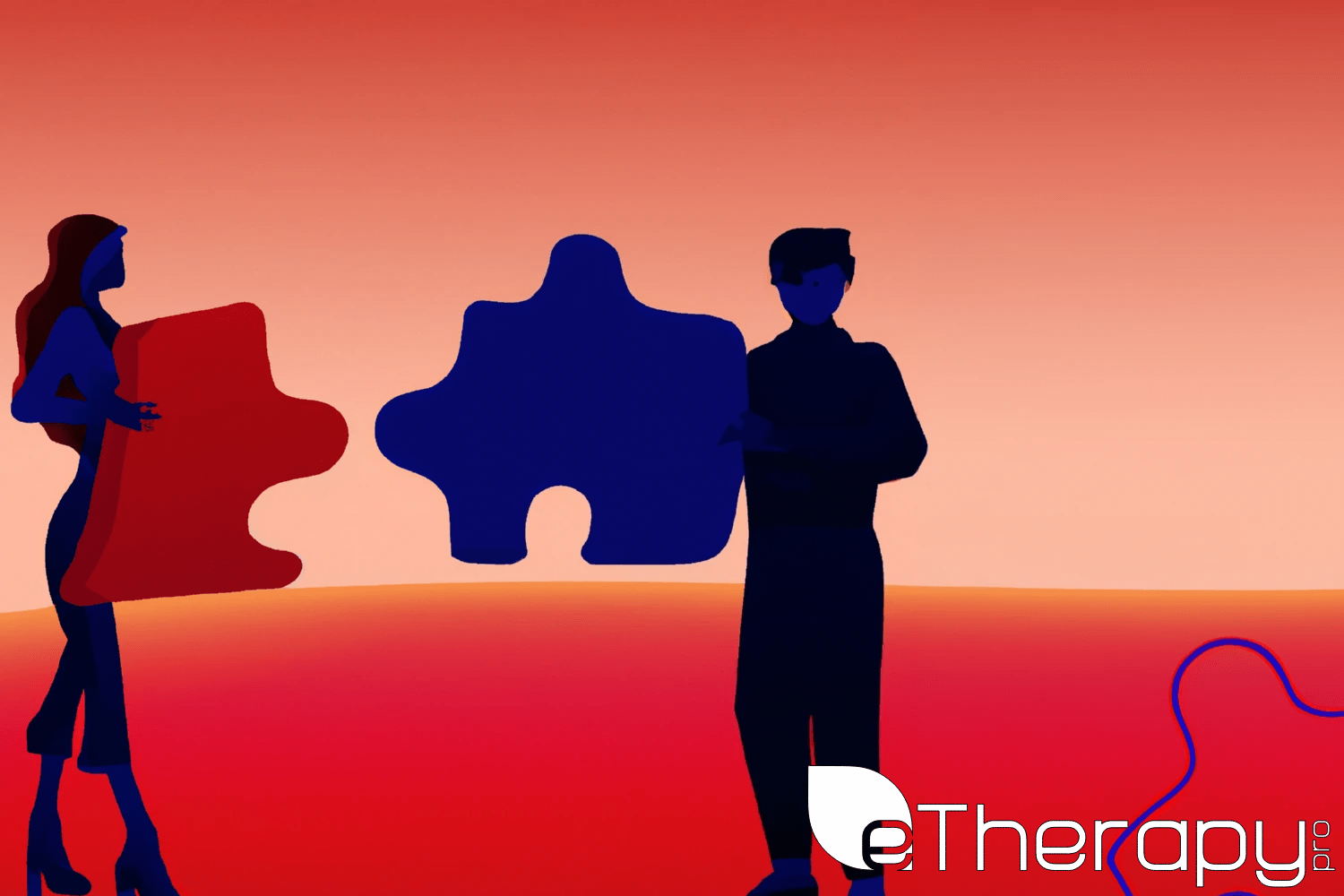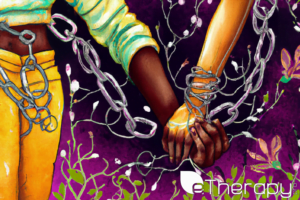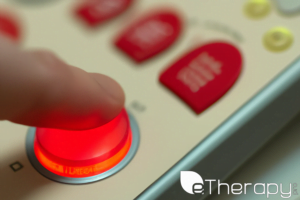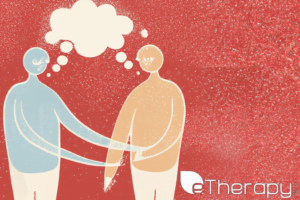 Lies in Relationships: In the realm of relationships, honesty, and transparency are the cornerstones upon which trust is built. But what happens when lies infiltrate this sacred space, causing tremors in the foundation of trust? In this comprehensive analysis, we’ll delve into why lies occur, their impact, and ways to address and prevent dishonesty.
Lies in Relationships: In the realm of relationships, honesty, and transparency are the cornerstones upon which trust is built. But what happens when lies infiltrate this sacred space, causing tremors in the foundation of trust? In this comprehensive analysis, we’ll delve into why lies occur, their impact, and ways to address and prevent dishonesty.
Honesty is more than not lying. It is truth telling, truth speaking, truth living, and truth loving. – James E. Faust
Why People Lie in Relationships
It’s an uncomfortable truth, but people do lie in relationships. Let’s look at why this happens.
Fear of Conflict
One prevalent cause of dishonesty in relationships is the fear of conflict. Many individuals, wary of causing discomfort or sparking a confrontation, resort to lying. They project a reality they believe is safer, often to avoid a potential argument or even a breakup.
To Protect Feelings
Another reason people lie is to protect their partner’s feelings. They may hide the truth if they believe it could cause unnecessary pain. Ironically, this protective measure can create deeper rifts as it undermines trust over time.
Insecurity and Self-Preservation
At times, lies sprout from a place of insecurity and self-preservation. People may lie about their past, exaggerate their accomplishments, or fabricate stories to appear more appealing. These lies often stem from a fear of inadequacy or rejection.
Recognizing Lies in Relationships
Recognizing dishonesty is an essential step towards addressing it. In many cases, lies in relationships are not blatantly obvious, making them difficult to spot. However, paying attention to inconsistencies in narratives, changes in behavior, or unusual patterns can provide critical insights. Let’s delve deeper into these signs.
Inconsistencies and Contradictions
Inconsistent narratives are one of the most common indicators of lying. If your partner’s stories about a situation frequently change, it might be a sign of dishonesty. This could range from small inconsistencies in their everyday recounting of events to significant contradictions in major life stories or experiences. For example, if your partner gives different explanations about where they were on a particular night or their account of a past event keeps changing, it could indicate lying.
Unusual Behavior
Behavioral changes can also serve as red flags for dishonesty. Sudden shifts in demeanor, body language, or communication style can indicate that something is amiss. A partner who is lying might start avoiding eye contact more frequently, exhibit heightened defensiveness when questioned, or evade answering direct questions. They may also overcompensate by excessively asserting their honesty or react with hostility when confronted with suspicions, aiming to deflect attention.
Impact of Lies on Relationships
Lies, even small, seemingly inconsequential ones, can have significant repercussions on relationships. They can erode the foundation of trust, cause emotional distress, and create a wide rift between partners. Let’s take a closer look at these impacts.
Erosion of Trust
Trust is a cornerstone of any healthy relationship, and lies can critically undermine it. Once broken, trust can be challenging and time-consuming to repair. Lies, regardless of their magnitude, can gradually wear down the trust in a relationship, leaving it vulnerable and fragile. Over time, if lies persist, they can result in the breakdown of the relationship, as the betrayed partner might find it increasingly difficult to believe in their partner or the relationship itself.
A breach in trust brings mistrust, followed by a multitude of troubles. – Pawan Mishra
Emotional Distress
Discovering a partner’s dishonesty can lead to profound emotional distress. Feelings of betrayal, hurt, anger, and confusion often surface, leaving the individual questioning their judgment, self-worth, and the authenticity of their relationship. This emotional turmoil can lead to a crisis of faith in the relationship and cause significant psychological stress. Over time, if not addressed appropriately, it can result in anxiety, depression, and other mental health concerns.
Addressing Lies in Relationships
Addressing dishonesty in a relationship is often challenging but crucial for the relationship’s health. It involves directly confronting the issue, creating an environment conducive to open communication, and seeking professional help when necessary. Let’s look at how these steps can help resolve the issue and potentially repair the relationship.
Confronting the Issue
The first step to addressing dishonesty is to confront it directly but respectfully. It’s crucial to gather your thoughts, communicate your concerns, and allow your partner an opportunity to explain their actions. Start the conversation in a non-accusatory way, focusing on your feelings and the observed behaviors that led to your concerns. For instance, saying, “I felt hurt when I noticed inconsistencies in your stories, can we talk about it?” can open up a constructive dialogue. Remember, the goal here is not to win an argument but to understand the truth and to express your feelings about the dishonesty.
Creating a Safe Space for Communication
Confronting dishonesty should also involve fostering a safe and non-judgmental environment for open communication. This involves actively listening to your partner’s explanation and responding without immediate judgment or blame. Acknowledge their feelings and reassure them of your commitment to understand and work through the issue together. Remember, it’s essential to approach this dialogue with empathy and patience, as it might be difficult for your partner to admit their dishonesty.
Seek Professional Help
Sometimes, lies in a relationship can create a complex web that’s hard to untangle without professional guidance. That’s where platforms like eTherapyPro come in. eTherapyPro offers secure, confidential online counseling services that provide you with access to experienced therapists. These professionals can offer insight, tools, and strategies to help you navigate through the challenges brought on by dishonesty in the relationship. Whether it’s individual therapy to process your feelings or couples therapy to facilitate effective communication and healing, professional help can be an invaluable resource in addressing lies in relationships.
Promoting Honesty in Relationships
While addressing existing lies is important, promoting a culture of honesty is crucial for the future health of the relationship.
Building Trust
By creating a safe space where both parties feel secure, honesty can flourish. Assure your partner that admitting mistakes won’t lead to backlash, but will be met with understanding and respect.
Open Communication
Open, regular communication can significantly reduce the need for lies. Encourage discussions about feelings, needs, and concerns. Creating a culture of open dialogue can help eliminate misunderstandings and facilitate a healthier, more honest relationship.
The Role of Therapy in Uncovering Truth
Professional therapy, such as what’s offered on eTherapyPro, can be invaluable when it comes to uncovering and dealing with dishonesty in relationships. Therapists can provide a neutral, non-judgmental space where you can openly discuss your fears, frustrations, and desires.
Individual Therapy
Individual therapy can be particularly helpful in addressing personal insecurities or fears that might be causing one to resort to lying. By understanding these personal issues better, individuals can work on self-improvement and, by extension, foster a healthier relationship.
Couple’s Therapy
Couples therapy can also be a beneficial platform for addressing lies in relationships. It provides a safe environment where both parties can express their feelings, concerns, and hopes for the future under the guidance of a professional.
Conclusion of Lies in Relationships
Lies in relationships, regardless of their origin or intent, can erode trust and cause emotional distress. It’s crucial to understand the reasons behind dishonesty, recognize the signs, and know how to address them effectively. Fostering an environment of open communication and trust is key, and professional platforms like eTherapyPro can be instrumental in navigating this challenging terrain. Remember, promoting honesty and nurturing trust are continual processes that contribute to a stronger, healthier relationship.









